The unfashionable truth about Emmanuel Adebayor, and why you're wrong to judge him
The Togolese striker left Spurs under a cloud, and nor is he Mr Popular at his former clubs – but Seb Stafford-Bloor says the 31-year-old deserves empathy if not respect...
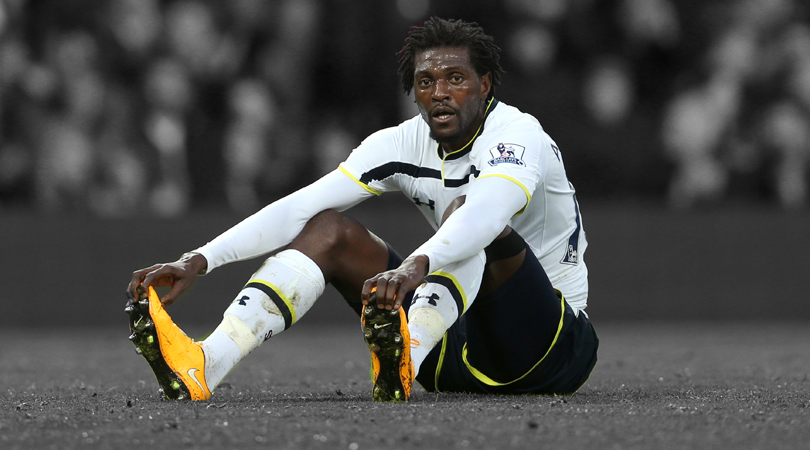
With his Tottenham contract now cancelled, maybe Emmanuel Adebayor is about to begin his slide out of English football's consciousness. The Togolese forward is now a free agent, and while the suggestion remains that he could re-join one-time manager Tim Sherwood at Aston Villa, his advancing years mean that, even if it hasn't quite arrived, the end is now in sight.
The distance between what Adebayor has accomplished and what he might have done should make him fascinating. The football community adores an enigma and is perpetually fascinated by the winds which drag talent off course, but Adebayor's story has too often been coloured by stereotype.
He has been given a part to play by the English community; he has been forced into a costume and shoved on stage without anyone ever really asking whether he fits the role. He's the African player; he's the one solely motivated by money and who only tries when he wants to. A man without a country and the consensus composite of a footballing mercenary.
Life through religion
Unable to properly walk until the age of four, the young Adebayor spent his early childhood accompanying his mother across his native continent in search of a cure, which eventually led them to prayer
As time passes, the more that will look like an ugly caricature. Adebayor's decisions and his preference for large contracts make him distinctly unremarkable. He is just a product of his time and the black marks on his CV appear on those belonging to dozens of English players who are viewed similarly. But Adebayor is cast as the bogeyman; he's the one who has been pushed to the front and centre of that avaricious culture. Very little about the player is common knowledge or, at least, what is known is disregarded in favour of a more digestible truth. Throughout his career, little effort has been made to contextualise Adebayor or explore the roots of personality. That's quite strange. Not only because he's owed that privilege, but also because his path to the professional game and journey through it has been both unusual and deeply troubling.
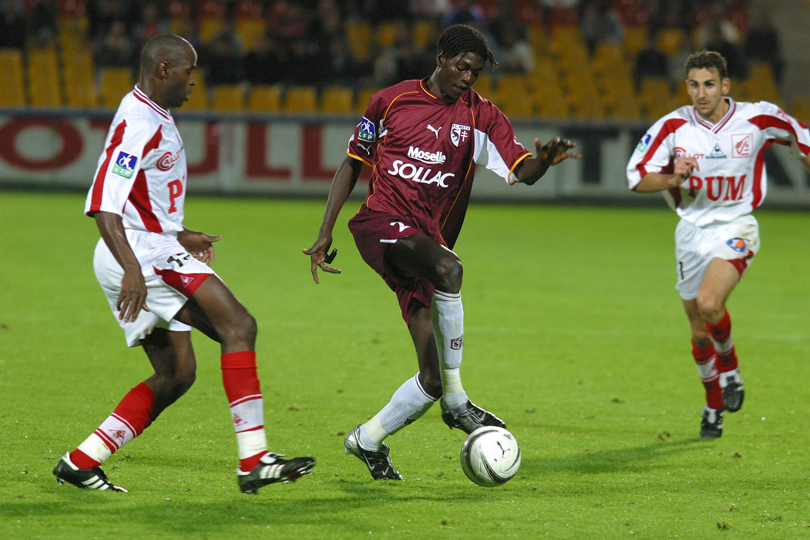
Football has been the common thread through his life. Unable to properly walk until the age of four, the young Adebayor spent his early childhood accompanying his mother across his native continent in search of a cure, which eventually led them to prayer. "They took me to a church and told my mum they’d pray for me for a week," he recalled. "I was in the church laying down. Suddenly somebody kicked a ball into the church. And the first person to stand up and run was me, because I wanted to get that ball."
It's easy to sneer and to be cynical, but it's a story which the adult Adebayor evidently believes. It's veracity, therefore, is really incidental. Religion became – and remains – a guiding force in this life and his early attachment to football was entirely understandable.
Get FourFourTwo Newsletter
The best features, fun and footballing quizzes, straight to your inbox every week.
Emotional cost
At 15 I wasn’t just playing for my own glory, I was playing for the sake of my family
As a teenager, he trod a difficult if not unique path. Leaving his native country as a 15-year-old and moving to Metz's academy, his first team-mates recall a tall, thin child who arrived in France in traditional African dress and with little understanding of his new surroundings. Interviews with the player in subsequent years revealed the difficulty of the adjustment and not only the strain of being away from his family, but also the heavy onus on him to succeed. "At 15 I wasn’t just playing for my own glory, I was playing for the sake of my family," he admitted.
Adebayor was escaping poverty and a small home that he sometimes shared with 10 relatives, but he was doing so by paying an emotional price. He was forced to make a choice between his family and his career and, when it occurs at such a young age, that's the kind of decision which comes with consequences.
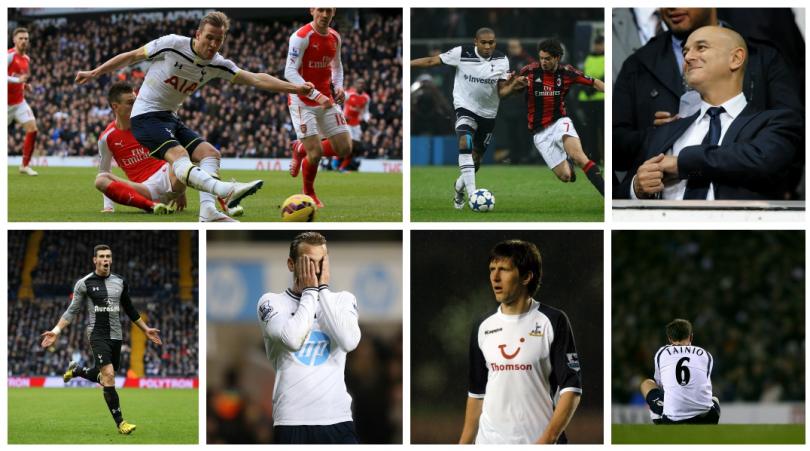
The concept of loyalty for someone of his background, who has been forced to emotionlessly prioritise his future ahead of everything else, is theoretically different to a player who has the benefit of a more formulaic sporting graduation.
His time at Tottenham ended in a haze of ugliness and assumption. A protracted fall-out with Andre Villas-Boas was followed by a recall and renaissance under Tim Sherwood and then, although briefly favoured by Mauricio Pochettino, his career again vanished into that fog of accusation and rumour. It's an alarming pattern and one which nobody should be comfortable with. Continent-specific prejudice still bubbles, and Adebayor's genuine difficulties have always been dismissed and replaced by a familiar set of derisory cliches: he was just lazy and content to sit on his contract and collect his money. The origins of such an assumption are dark.
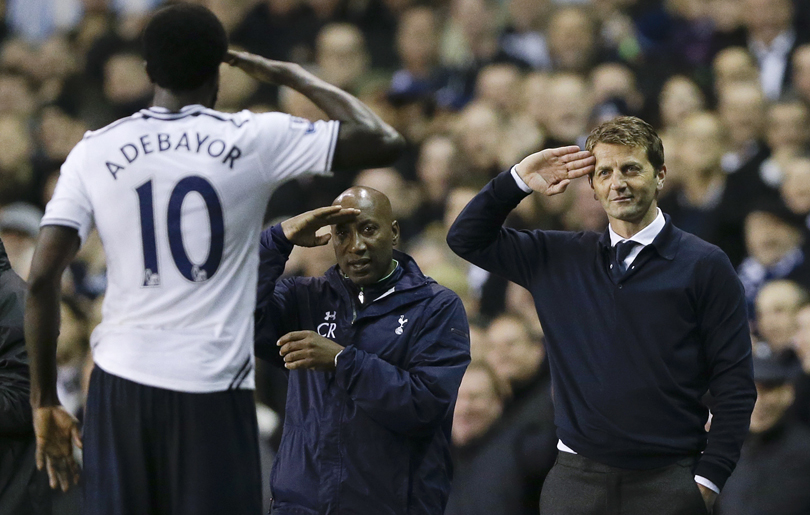
Real horrors
There are stories of emotional blackmail, witchcraft, suicidal thoughts, physical violence and of an intricate system of obliged patronage that, cumulatively, has evidently pushed Adebayor to his emotional limit
Football has grown to such a level now that the most visible players have acquired a film-star gloss and are assumed to be impervious to real-world pain. That's a fallacy, though, and Adebayor is a very pertinent example of why. The 2010 attack on the Togolese national team's bus was the kind of trauma that nobody walks away from unscathed. Adebayor was physically unharmed, but nobody who saw the photographs of him from the aftermath or heard him describe carrying the bloodied and wounded to safety would contest that he remains deeply scarred.
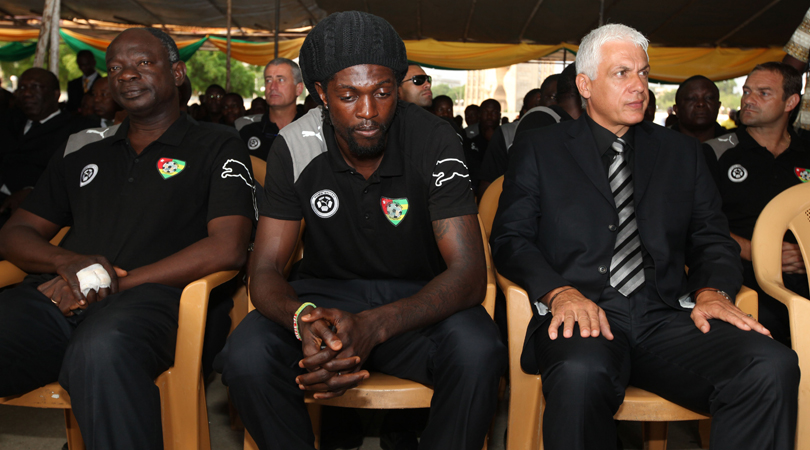
But the hatred has still raged. When he retired from international football in 2010, citing the trauma of that January day and fears over his safety, the old narrative returned and he was assumed to be turning his back on his country in a dispute over bonuses. Another triumph for an easy conclusion to a more complex truth. The death of his brother Peter in 2013 evidently caused a family rift which exists to this day. Either through a need for self-catharsis or as a symptom of his emotional instability, Adebayor took to social media to document the acrimony between him, his mother, his older brother Kolo, and his sister Yabo.
SEA, I have kept these stories for a long time but I think today it is worth sharing some of them with you. It's true...
Posted by Emmanuel Adebayor on Tuesday, 5 May 2015
There are stories of emotional blackmail, witchcraft, suicidal thoughts, physical violence and of an intricate system of obliged patronage that, cumulatively, has evidently pushed Adebayor to his emotional limit and reprioritised football as a mere occupation. His personal life has been in perpetual chaos for most of the last decade and his late-20s have been soundtracked by the haunting chime of a terrible memory, the abandonment by those closest to him, and by a chorus of sneers from his own fans.
Trivialising these issues and reducing Adebayor to the two-dimensional character on a television screen is crass. The deeper you drill into his life, the more remarkable it seems that he was able to forge any sort of career at all. He has faced emotional challenges that would have broken the backs of many of his contemporaries, yet those stories are never used to prefix the cliché-endorsing anecdotes.
He is a human being: a detail which has too often been disregarded. He may not be owed anybody's affection, but he's entitled to some sort of understanding.
Seb Stafford-Bloor is a football writer at Tifo Football and member of the Football Writers' Association. He was formerly a regularly columnist for the FourFourTwo website, covering all aspects of the game, including tactical analysis, reaction pieces, longer-term trends and critiquing the increasingly shady business of football's financial side and authorities' decision-making.
